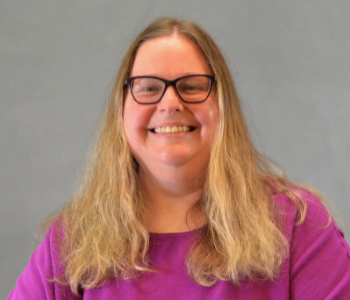- Home
- Academics
- School of Arts and Sciences
- Biological Science
- Secondary Education
Biology – Secondary Education

Do you see yourself teaching high school science as a career? Our Secondary Education concentration of the Bachelor of Biological Sciences degree prepares future secondary biology teachers for the region and state. Students will complete classes in both biology and education to get a well-rounded preparatory experience. This concentration allows students to explore multiple areas of biology while also obtaining the information they need to be successful educators.
Why study Secondary Education in Biology at Coastal Georgia?
Highly-qualified science and mathematics teachers are known to be critically important to increase the number of high school graduates who pursue advanced degrees in Science, Technology, Engineering, and Mathematics (STEM). This concentration aligns with the curriculum guidelines of the Next Generation Science Standards: NCATE/NGSS Program Standards (2003). Graduates from the education program can go on to teach at local area schools or outside of the region if desired.
What will I learn?
As a student on this career path, you will learn the basics in your core classes, more advanced topics and techniques in the science major courses, and the foundations of teaching in your education classes. The biology side of the degree will prepare you for the science aspect of education, and give you the knowledge you need to teach different areas of biology. Additionally, you will have the opportunity to take the biological research course, which will give you an introduction to research and proper experimental design, and will teach you skills for evaluating scientific literature and for doing statistical analyses. A Senior Seminar source is also required to give the student experience with presentations. The education courses will teach the students skills that will benefit them in the classroom and will include multiple practicums that will give the students hands-on experiences within the education system.
What can I do when I graduate?
Upon graduation with the degree, and passing the required licensing exam(s), a student with a degree in Secondary Education – Biology can teach science courses at the high school level or pursue non-traditional jobs such as adult education or curriculum development. Some students may decide to pursue a masters or doctoral degree to further their education.
-
Dr. Jennifer Hatchel
 Professor of BiologyCamden Faculty/Staff
Professor of BiologyCamden Faculty/StaffEducation
Ph.D. in Microbiology, Miami University
M.S. in Biological Sciences, Austin Peay State University
B.S. in Biological Sciences, University of Tennessee at MartinTeaching and Research Interests / Recent Publications or Scholarly Output
My teaching interests include general biology, foundations of microbiology, advanced microbiology, microbial diversity, infectious diseases, and environmental microbiology. My research interests are in the areas of antimicrobial susceptibility and environmental bacteriology. My most recent publication is a lab manual titled Techniques and Applications for the Microbiology Lab published by Kendall Hunt (2024).